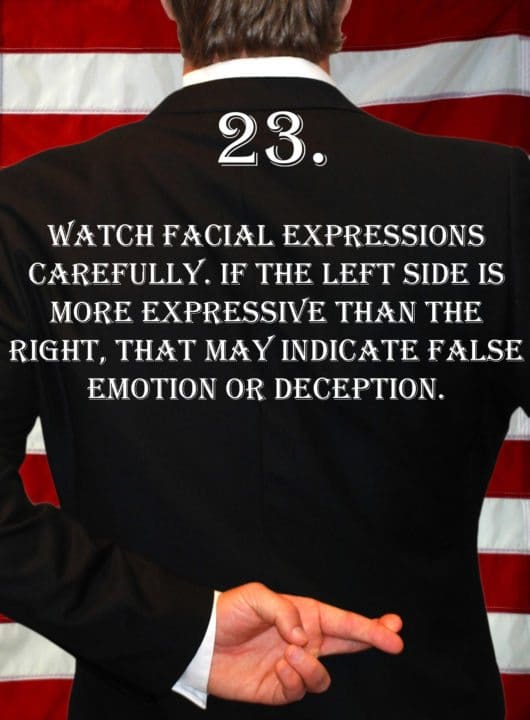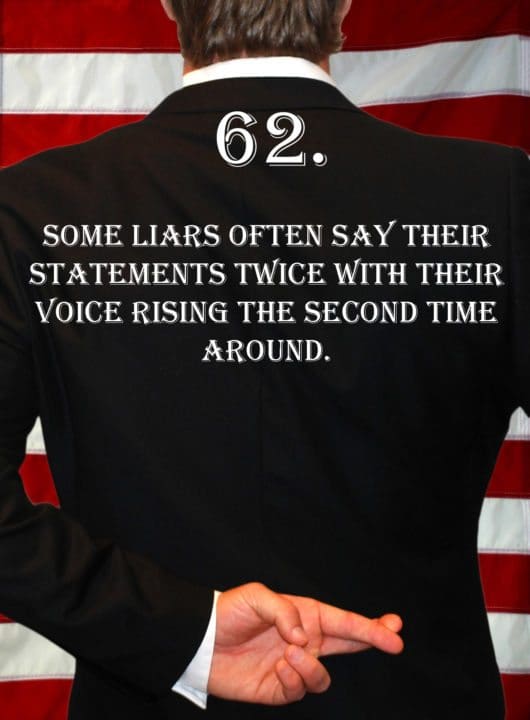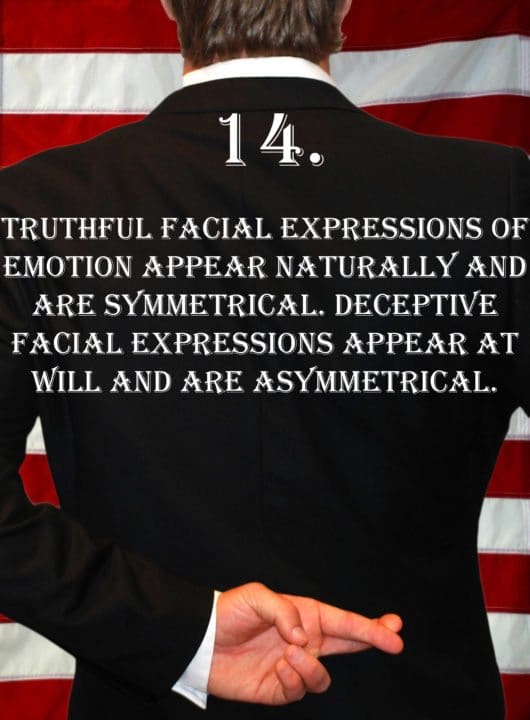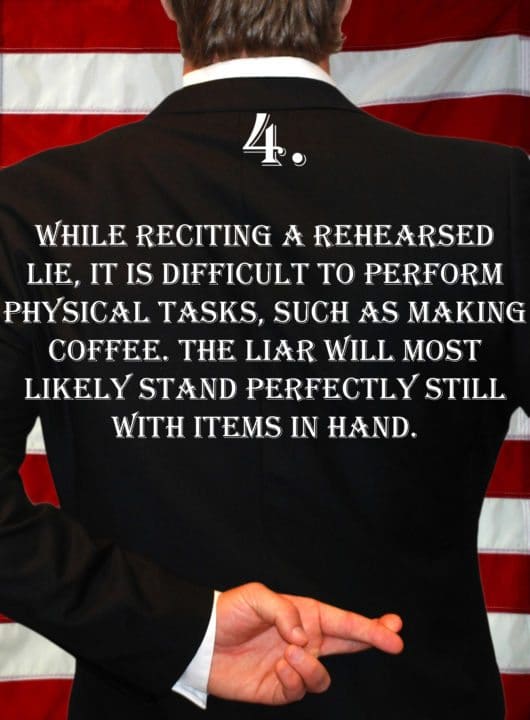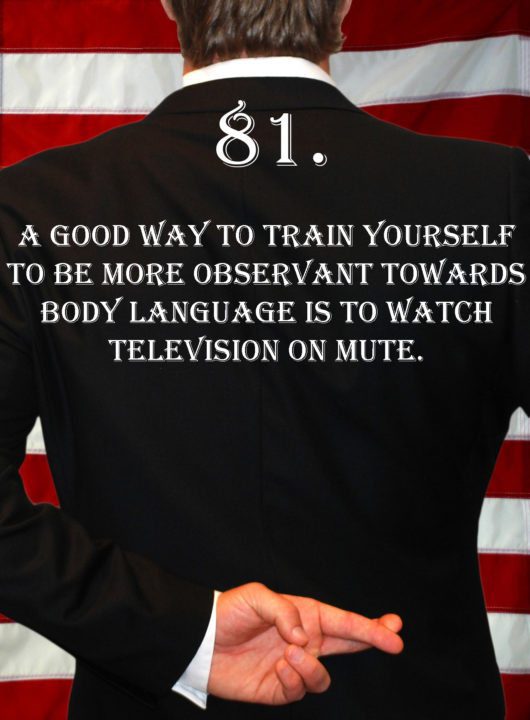
Deception Tip 81:
A good way to train yourself to be more observant towards body language is to watch television on mute.
Listen To The Podcast!
E81 – Mute The TV – Deception Tips Podcast – Click Here To Subscribe
Podcast Transcript
Hello and welcome to the Deception Tips podcast where you will learn amazing cues to detect deceit that will help you read people like never before. I’m your host Spencer Coffman, let’s get started.
Hello, and welcome to episode 81 of the Deception Tips podcast. I have a favor to ask of you, if you would please hop on iTunes or iHeart Radio or Google Play or wherever you’re listening to this podcast and leave a review.
Take it a step further, share that review on your social media platforms, and let other people know that you’re learning how to read people and detect deception.
Help them learn how to do the same as well, so that your friends and family will not be taken advantage of by lies. Share this with them and also leave a review so that others can find it because reviews really do help. They’re like gold for any kind of producer, author, or podcaster, so leave reviews because they tremendously help other people find that product.
Moving on with what we talked about last week, it was a good episode, a big episode for me because we finally made it to Smiles in Lying. If you remember, I conducted a smile study, a study back in 2013, on whether or not people could accurately detect the difference between a real versus a fake smile. The study was published in 2013, but I conducted a lot of the research in 2012.
Either way, I found a lot of alarming results and contradictory results compared to what the big-time and standard people found in that industry. We were talking about Smiles in Lying, so smiles are very prevalent in lies because a smile is the easiest way to mask emotion. When someone is feeling some type of emotion, a smile will quickly cover it up.
Why? Well, because a smile takes control of the entire face, if there’s a little expression somewhere on the face, a smile will easily cover up it and any other expressions that may be happening. That alone is an act of deception, the smile covering another emotion. Then you have the deception that is going on with whatever that leakage was.
Remember that the unconscious is always trying to leak out nonverbal and verbal signs of truth. If there’s some kind of expression that happens on the face, that’s the unconscious trying to leak something out. Then the conscious tries to cover it up with a smile, so that’s two acts of deception. You will see the smile and you need to determine whether it’s a masking smile, fake smile, or a real smile.
So, fake or real, if it’s fake, then that’s deception right there. Then you need to figure out what it was covering up because chances are, it was covering up some form of truthful behavior. You need to figure out what was going on so that you know exactly what they were lying about or what was being hidden right there.
A lot of steps and a smile is the key to understanding and opening the door to go down that path and get into the other rooms and solve that puzzle, so keep that in mind.
Today, we are talking about another sign of deception that isn’t a sign at all, it’s a strategy. This is a strategy you can use to practice your deception detecting skills. It will also help you a lot more in reading people and understanding body language because you’ll be able to put it together, and you’ll start to see this. Now, I warn you, it is a little bit frustrating in the beginning and it could be boring and seem pointless.
The reason is that it really is kind of boring, you’re not really doing anything other than watching. You don’t even really know what you’re watching in the beginning until you start to pay attention and understand the different signs that are going on on people’s bodies. However, I promise you that it will help, it is interesting once you start to understand what’s going on and once you get to know it.
In addition, we’ve also hinted on this a couple of episodes ago when I mentioned how you should be believing body language because body language is truthful. Now, when I say body language I mean unconscious body language, stuff that’s leaked out by the unconscious as signs of truth. I mentioned a good way for you to help improve your body language detecting skills is to watch TV with it on mute.
You will be able to see the people’s body language instead of focusing on what they’re saying and listening to it all. Another thing you could do would be to watch crowds at a distance or watch interrogations of people from the other room without audio, so you can’t hear these things.
Either way, here it is, this is Deception Tip number 81. A good way to train yourself to be more observant towards body language is to watch television on mute. Here it is again, Deception Tip number 81. A good way to train yourself to be more observant towards body language is to watch television on mute.
Again, watching TV on mute can be a little bit boring, however, I recommend that you start with something that you already know. Therefore, pick a movie or a TV show that you’ve seen before, that you enjoy, maybe one of your favorites that you don’t necessarily know all the words to it.
One that you would at least understand what’s going on in the film or in the picture so that when you’re watching it off volume, on mute then you will still have an idea of what’s happening.
That way, when you start to see body language appear, you can think about what’s going on at that moment in the picture. You’ll be able to reason and say, okay, I remember from seeing this before that when they did this, that’s this part in the movie and this is about to happen and this is going to happen. So, that little sign that I saw probably does indicate the fact that that person is lying.
You can get excited about it because you know what’s about to happen because you’ve seen the movie before. You’ll be able to tell whether or not you’re detecting skills are on.
Another thing is when you know that there are certain things in the picture where people might be lying or signs might be coming out. If you’ve seen that before, you can watch without the volume to see if you notice any nonverbal signs.
A big argument that happens with this is, well, TV is fake, so how can these signs be true? If they’re only actors, are they really lying? The entire show is an act, they’re lying the entire time, they’re playing a role, and they’re not even being themselves. If someone’s acting, they’re lying, they’re saying that they’re a different name than they are, so shouldn’t you see signs of deception throughout the entire thing?
If someone is acting and they’re saying, I am so-and-so, well, that’s not their real name, that’s their name in the movie. Therefore, wouldn’t that be a lie? How about all the different things that are happening? If they’re supposed to lie in the film and pretend to deceive someone, well, is it really deceiving them if the entire film is a lie?
That’s what they’re supposed to do, they’re acting, so how can it be a true emotion and really be portrayed on the body if the whole thing is only an act and they’re only actors? Those are some really great questions and we’re going to address them coming up right after this.
Do you read the reviews on Amazon before making a purchase? Reviews help consumers find products that interest them, the same is true with podcasts. Consider reviewing this podcast to help others learn how to detect deception.
Welcome back to Deception Tip episode number 81, where we’re talking about the importance of watching TV with the volume muted. Why is that important? It is because you will be able to read people and detect deception without any distractions of volume or sound or people talking.
You’ll be able to just hone in on the body language and see what you can see, especially if it’s something you’ve seen before, like a movie or a picture or a TV show that you know.
You’ll be able to better pick up on what’s happening in the movie or the film or picture. You should be able to keep your interest a lot longer because you already know what’s going on, it won’t be so boring or dull for you. Before we took a little break, I brought up some questions on whether or not it will really be a good thing for you to do because when someone is in a film, they’re acting.
Therefore, that entire act is a form of deception because they are saying they’re someone they’re not, they’re playing a role, and they’re pretending to be someone else. The things that are going on in that movie aren’t real, they’re fake. Therefore, if they have to lie or deceive someone as a part of that role, are they really deceiving someone because the entire thing is essentially an act of deception, they’re playing a role.
Well, the good news is that that doesn’t matter because when someone is acting, a good actor gets into the role. So, in their mind, they are becoming that person, they’re becoming that character. Therefore, while they’re playing that part, inside they believe that’s who they are, they’re a great actor, they become the role. If they are playing some kind of a police officer, they are a police officer, they become it.
How do we know that good actors become their roles? Well, years ago, there was a very famous prison experiment, you’ve probably heard of it, it’s called the Stanford Prison Experiment. They took ordinary people and they divided them half and half. And they said half are going to be guards, half are going to be inmates and we’re going to see what happens.
It was supposed to be a really long study, several weeks. However, the people in there, they weren’t prison guards, they weren’t police officers, they weren’t inmates, they were ordinary people. Teachers, doctors, all kinds of regular jobs, and after only a week or two, it got so serious they had to stop the study. Why did it get so serious? Because these people started to believe that that is who they were.
The guards started to believe that they were prison guards, they were being rough with these prisoners. The prisoners, they lost their sense of purpose, self-worth, everything, they thought that they were worthless inmates who were only a number.
They didn’t have an identity, they had nothing, these people became who they were told to be. A good actor, even if they’re not a good actor, if they are playing that part long enough, a movie can take months to produce.
This study only happened for a couple of weeks and they had to discontinue, they had to stop because it was getting too crazy. Actors, when they’re working for weeks on a project or months, they will become that role. So, like your TV shows that have season after season after season with 10 seasons or 14 seasons, they’re becoming those people.
In their minds and in their bodies, they believe they are that role. They know they’re not, obviously, but their body language and everything will reflect that person, that personality. Therefore, when they’re in the movie and they’re acting, it’s not an act of deception to them, they are that person, so it is who they are. Then what about the question of when someone lies in the movie as a part of that role?
Will their body and will their unconscious and everything really see it as a lie because it’s not something that is truthful? The answer to that is yes. Even though it’s acting and the whole thing isn’t real, they will still perceive it as a lie, as deception. Remember, even though the whole thing isn’t real, to them, they are that person, they are that role, so they know what’s supposed to happen.
They know that, okay, at this minute, when we’re in this scenario, I am supposed to lie about what I did, even though they didn’t do it. Well, they did it in the movie or they did it in the script, so their character did it and they are now lying about it. That means it is a lie because they did it, in their mind, they made it real for them, therefore, they will still exhibit all of these signs of deception.
So, you will be able to see this while watching TV, even if it is a reality or a fictitious show, some kind of TV show, like the mentalist where they’re interrogating people. That one is centered on watching people and reading them and analyzing them but you will see signs of deception within those characters or those suspects. Another great TV show, Lie to Me, that one is all about reading people and detecting deception, I highly recommend it.
You will see signs in there, some of those signs may be scripted because they are intentionally trying to teach people how to read people and detect deception. That’s probably why the show was discontinued because it was too powerful, people were really learning from watching that show.
Either way, if you don’t believe what I’m saying, and I haven’t convinced you and you’re not convinced by watching TV, you could either watch TV shows like Monk or Burn Notice.
Those also have deception and lies that you could spot and you could see on people, but if you’re still skeptical, then simply go ahead and watch the news and watch politicians speak. Watch those kinds of things because those are generally filmed live and in real life and they aren’t scripted, they’re not acting. The person is who they are, they’re not playing a role. Therefore, when you see them talk, you should be able to pick up a lot of signs of body language, deception, etc.
So, no matter what you’re watching, know that you can still pick up these signs of deception and body language in whatever you’re watching. In a TV show that is scripted, you may know when it’s a lie and when it’s the truth already and you can see if there are signs that go with it.
When you’re watching the news or a politician’s speech, you won’t know but you may see it, so keep trying, keep learning, and never give up on detecting deception.
I want to thank you for listening to this week’s episode of the Deception Tips podcast. I hope that you’ll share with your friends, subscribe to the feed, check out the deception tips videos, the blog, and take a look at the books I have available and, as always, tune in next week for a new deception tip.
Video Transcript
Hey guys, my name is Spencer Coffman, thank you for watching the deception tips videos. They’re all about teaching you how to read people and detect deception so that you will be able to tell if someone is lying to you. Today, I’m going to teach you a little thing that you can do to help improve your body language reading ability. It’s important that you practice, you really need to get out there and watch people.
You need to pay attention to what they’re saying, you need to engage in some conversations, but more important than engaging in conversations is to sit back and observe conversations. If you’re speaking with someone, chances are you’re more focused on what you’re going to say than on what they may be saying unconsciously or their body language.
You may be watching them but you’re also thinking about your response, you’re processing what they’re saying, how you are going to reply to that. Typically, a lot of people who are in conversations don’t listen anyway, after the first two words out of the other person’s mouth, they’re already thinking about what they’re going to say. Chances are they are going to interrupt the other person and then try to speak what they’re going to say anyway.
So, if you are in a conversation with someone, you’re going to have a lot more difficulty trying to learn these tips. The best thing to do is observe a conversation with two other people or with other people and you sit back, watch, listen, hear and you can get an idea of what’s going on without being a part of that conversation.
So, here it is, this is Deception Tip number 81. A good way to train yourself to be more observant towards body language is to watch the television on mute. What’s really important about this is that when you are observing these other conversations, maybe you don’t want to hear what they’re saying.
For example, if you’re in a real-life situation where you have your two friends talking and you’re sitting on the side and you’re watching this. These two people may be talking but you know a lot about this topic, so rather than watch them, you’re starting to think about it in your mind, the words could be distracting. Another thing you could do is if you’re at home and you don’t want to go out, you could watch the TV on mute.
Why would we do this, why mute the TV? Remember, words are deceptive, we have two languages, body language and spoken language and body language is truthful, spoken language can be false, it’s 50/50, it’s 75/25, a lot of things that people say are not true. So, when you’re doing this, you can watch the TV on mute to get the body language.
Remember in episode number 79, we talked about believing body language because it’s truthful. So, if you watch the TV on mute, this will give you a really good perspective on different gestures that they may be doing, different facial expressions that may be happening. One thing that you want to consider is are you going to watch a movie or are you going to watch a political type conversation or news.
If you’re watching a movie, these are actors, actors who are really good, they can get lying expression down because they’re playing a role. So, when they tell a lie in the script, they feel like it’s a lie, it’s like a third level because their entire role is a lie. They’re a real person in real life and then in the movie, they’re pretending to be someone else, so they’re being deceptive.
A really good actor can get into that role and it becomes real for them, so if their character is supposed to lie in the movie or in the program, their body language will believe that that is a lie since they believe that they are actually that role. It’s tricky but some actors who aren’t that good, they’re not going to display that, so you’re kind of hit and miss whether or not you’re really going to see genuine and helpful things when you put the TV on mute during a movie or a program.
Plus, a lot of times when people are talking in those things, they don’t have the face, or you can hardly see it. Therefore, it is better to watch things like political debates or news programs where the TV anchors or the reporters are just like this, where they’re right there with the camera. They’re speaking to the audience, to the camera, to the people, because number one, you have their entire face and body language the entire time.
Number two, it’s the real person, so whatever they’re saying you know that there are genuine expressions happening there. They’re not playing a role, it’s not a movie, it’s not for entertainment, I mean it might be but it’s something that they are producing from themselves, so it’s better to watch those. Watch it on mute, you could put it with the volume on two and watch multiple times so that you can see the differences that happen.
Maybe you know after listening to it, okay, I know for a fact these three things were not true because you’re watching one from five years ago. You’re not watching the current one, you’re watching an old one, so you know what they’re saying if it’s true or not. Now you can match it up, okay, I saw this body language and this body language and this body language then you can put it together as your own little research project. So, it’s something I highly recommend doing, it’s something that’s really going to help you with your body language and deception studies.
So, if this is your first time watching these videos, I’d love to have you subscribe to the channel on YouTube. Feel free to comment with any questions you may have below. If on this particular video you found some different debates or political stuff that was helpful for you, comment down there with it, with the links so that other people can have that information as well. Also, if you’d like some more information, we have books, blog posts, and podcasts all available on spencercoffman.com that are 100% dedicated to teaching you what every body is really saying.
Until next time.

